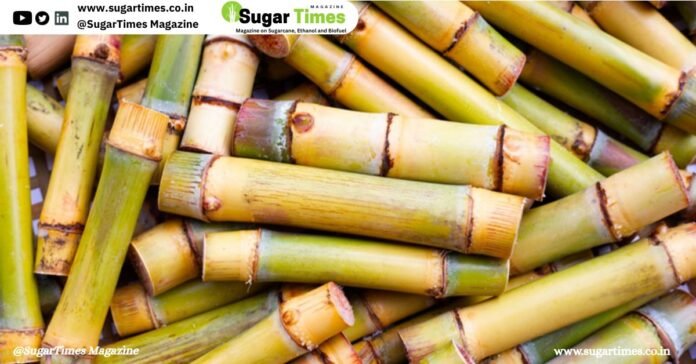The Indian Sugar and Bio-Energy Manufacturers Association (ISMA) has cautioned the government that a sharp cut in ethanol procurement from sugar mills could lead to serious financial stress for the industry and delays in payments to sugarcane farmers during the 2025–26 season, which begins next month. The association also warned that the move could result in excess sugar stock and idle distillery capacity across the country.
According to ISMA, sugar mills have been allocated just 289 crore litres of ethanol, accounting for only 28% of the total national requirement of 1,050 crore litres. In contrast, grain-based distilleries have received 760 crore litres, or 72% of the total allocation.
ISMA officials expressed disappointment, noting that the sugar industry has already invested over Rs 40,000 crore to build an ethanol production capacity of more than 900 crore litres.
“There seems to be a gap in planning and policy by the oil marketing companies (OMCs), leading to an imbalance and disruption in ethanol allotments for the sugar industry,” said Deepak Ballani, Director General of ISMA.
The ethanol blending programme was originally designed to help sugar mills manage surplus production and ensure timely payments to farmers. However, ISMA pointed out that the government’s increasing preference for grain-based ethanol, particularly from maize, has disrupted this balance and could again push the sugar sector into financial difficulty.
To address the issue, ISMA has urged the government to:
-
Increase ethanol allocation for sugar-based feedstock by 50%, expecting an additional 150 crore litres in the upcoming supplementary tender.
-
Raise the minimum selling price (MSP) of sugar, which has remained unchanged at Rs 31 per kg since February 2019.
The association noted that while the Fair and Remunerative Price (FRP) of sugarcane has risen 29% to Rs 355 per quintal, and Uttar Pradesh has further increased its State Advisory Price (SAP) by Rs 30 per quintal, the selling price of sugar has not kept pace — squeezing mill margins.
ISMA vice president Niraj Shirgaokar said that the cost of sugar production has now reached Rs 40.24 per kg, and with falling market prices expected by December, mills could struggle to remain profitable.
“It will be difficult for sugar mills to make timely payments to farmers unless they receive adequate revenue from sugar sales and ethanol supply,” he warned.
ISMA has called on the government to realign ethanol procurement policies with Niti Aayog’s roadmap, revise ethanol prices in line with current production costs, and increase the MSP of sugar to ensure financial stability for the industry and timely payments to farmers.





